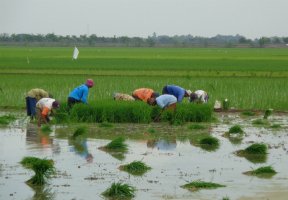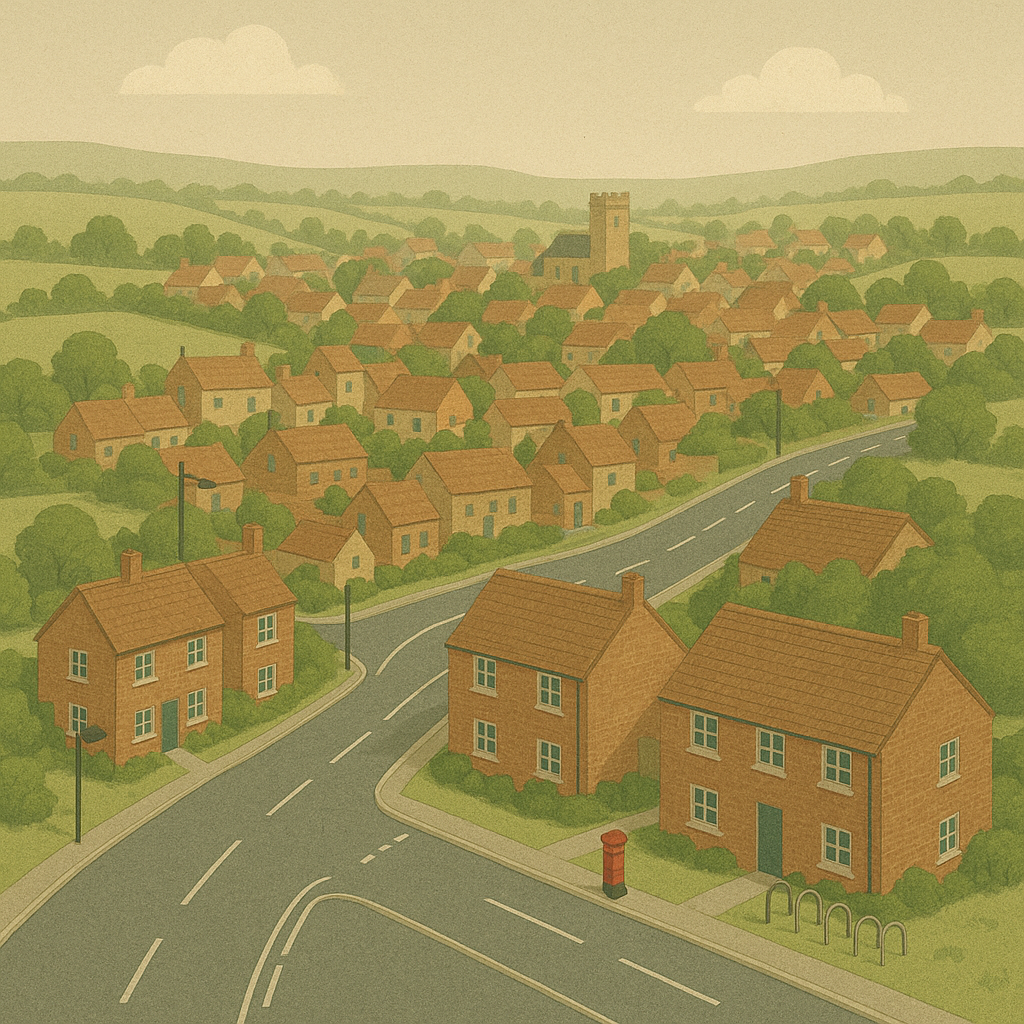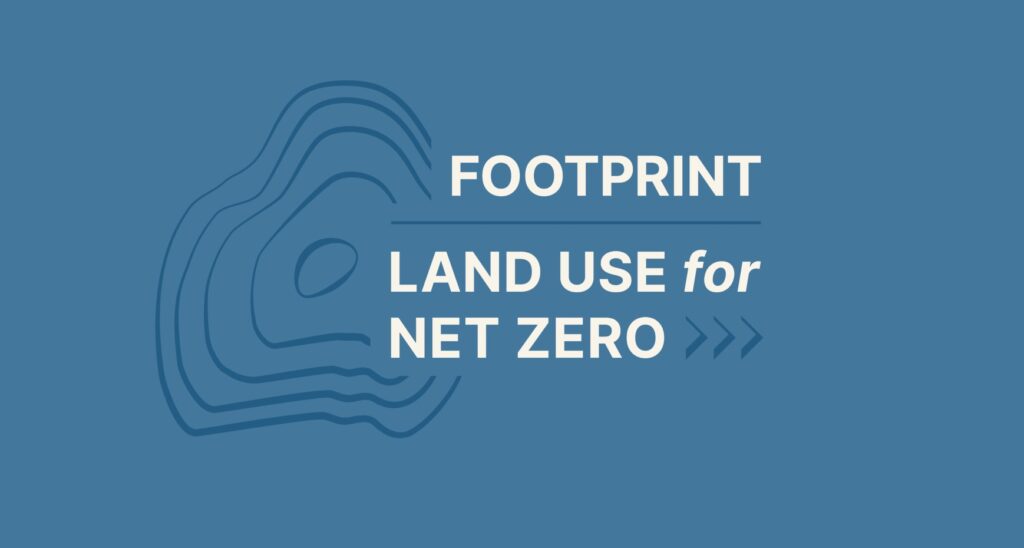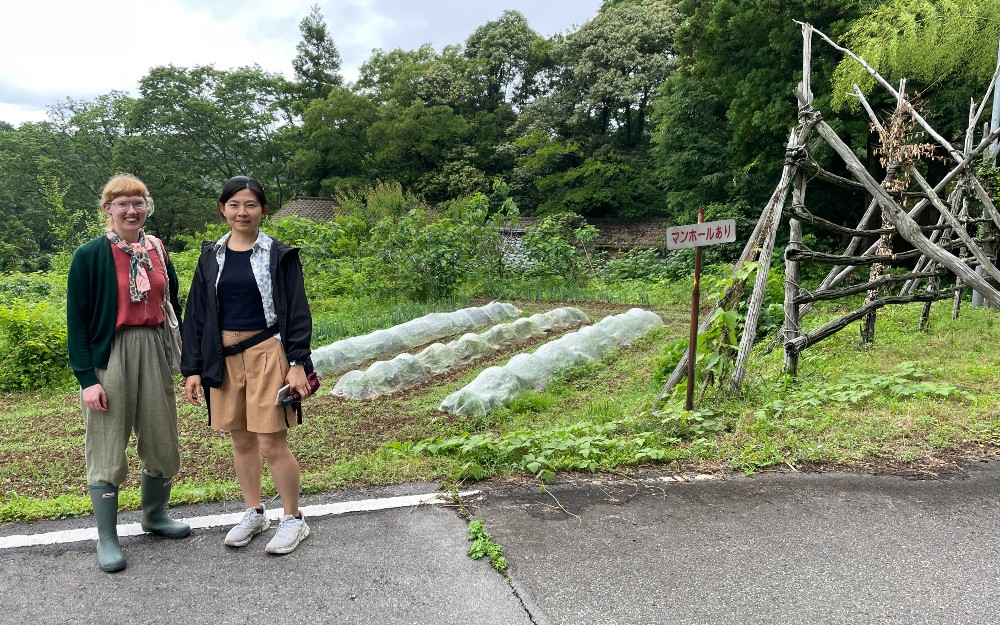I’m now over half way through my OECD Research Fellowship which has taken me to Australia, where I’m hosted by the University of Queensland, and Indonesia. The time has flown by and it has been (so far) a great experience.
I’m looking at different approaches to supporting farmer learning and adaptation in the face of climate variability. Although working in very different contexts, farmers in Australia and Indonesia both operate in high risk environments with variable rainfall and can benefit from support in making adaptation decisions.

Science Field Shops (SFS) in Indonesia provide an example of such support and whilst here I have been lucky enough to experience them first hand. SFS are equipping smallholder farmers to undertake their own rainfall and agroecosystem measurements, observations and on-farm experiments, and supporting them with monthly El Niño scenarios. Together these enable farmers to adapt to, and build resilience for, climate change and El Niño events, which affect both irrigated and rainfed rice systems.
The farmers (or rainfall observers as they are called) meet on a monthly basis and share their rainfall data. Their observations and the scenarios trigger conversations and, drawing on past experiences, they discuss adaption strategies such as dry rice nursery beds and new varieties. They are an innovative group and enjoy their monthly get-togethers over a good lunch. Professor Winarto and her team from the Anthropology Department of University of Indonesia have been building and working with SFS since 2009 and through their generosity I was invited along to a number of meetings to observe the groups in two contrasting areas, Indramayu and Sumedang, and talk to the farmers about possible future on-farm soil experiments.
Whilst in Indonesia I have been hosted by the Centre for International Forestry Research (CIFOR) in Bogor. Although a forestry organisation, CIFOR’s research looks at the interface between forest and agriculture as well as agroforestry, so I share a lot of research interests with researchers here. I have given two seminars, one to all CIFOR staff (science@10) and one to young scientists and students (science@4). I have also built up relationships with Indonesian academics in the Human Ecology and Agronomy departments at The Agricultural University in Bogor (IPB), which is nationally recognised.

Bogor, is a city known for its ‘cooler’ climate, high rainfall (it’s called the rain city with > 4000mm. p.a.), luxurious vegetation, a world class botanic garden and chaotic traffic. The people are endlessly friendly and smiling, very sociable and are often out and about enjoying the snacks on offer from the ubiquitous street vendors. It’s been fun living here and experiencing the idiosyncrasies of Bogor life like the self-appointed traffic ‘cops’, all called Mr Ogi, who stop traffic at busy junctions to let cars through for a small voluntary fee; the regular 2pm thunderstorms; and the 4.30am call to prayer ‘alarm’.
I am now heading back to University of Queensland, Brisbane, to complete the fellowship research. Here I’ll be continuing to review and evaluate the role of decision support tools in the NE grain growing region. Decision support tools offer the means for taking away uncertainty either for immediate agronomic decisions or for longer term learning and adaptation and have been extensively developed in Australia but are not always widely used. I’ll be exploring their future relevance, how they will exploit digital agriculture developments and the next generation of models, and where they fit into the advisory landscape. So lots to keep me busy!
Whilst in Australia I’m also taking the opportunity to build on established links with the Rural Innovation Research Group at Melbourne University, develop new collaborations with Curtin University, Perth, on the topic of On-farm Experimentation, and with researchers at Crops for the Future in Kuala Lumpur. I also caught up with Yong, our lovely UOG representative based in KL.




